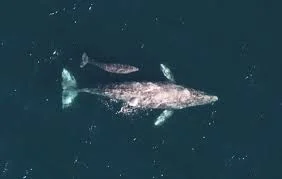Today, two of our attorneys are traveling to Seattle to participate the first waiver proceeding under the Marine Mammal Protection Act (“MMPA” or the Act) in over twenty years. In April 2019, the National Marine Fisheries Service (“NMFS”) announced that it would seek a waiver of the MMPA’s moratorium on the taking of marine mammals on behalf of the Makah Tribe to allow the hunting and killing of Eastern North Pacific gray whales in the United States Exclusive Economic Zone. In order to issue a waiver of the MMPA, NMFS must demonstrate, on the basis of the best scientific evidence available, that the proposed taking will not adversely affect marine mammal stocks and will be consistent with the policies and purposes of the Act, and must propose regulations to govern the issuance of permits under the proposed waiver. The decision to waive the take moratorium and issue regulations governing such take must be made on the record after an opportunity for an agency hearing. It is clear from NMFS’s testimony that the proposed waiver and regulations will not be consistent with the policies and purposes of the MMPA, including because the hunt will result in the take of Western North Pacific gray whales, which are listed as endangered under the Endangered Species Act, and risks depleting the genetically and behaviorally distinct “resident” Pacific Coast gray whale population. The need for a precautionary approach to gray whale management is further evidenced by the fact that the Eastern North Pacific gray whale population is currently undergoing an Unusual Mortality Event (“UME”) due to an increased number of strandings. It would be contrary to the principles of sound resource management to authorize the intentional killing of individuals from a population that is experiencing increased mortality until the duration, severity, and causes of the UME can be determined. Our attorneys will be representing the Animal Welfare Institute in the administrative hearing, scheduled to begin on November 14, 2019.
(Photo courtesy of NOAA Fisheries)

